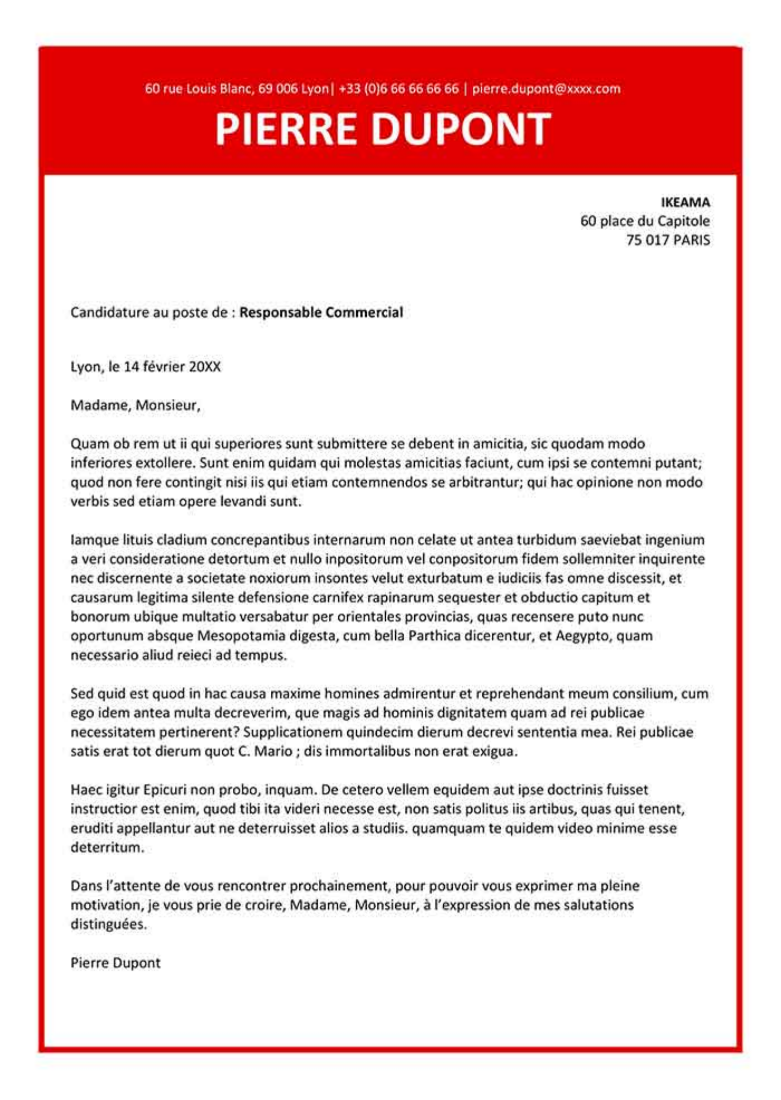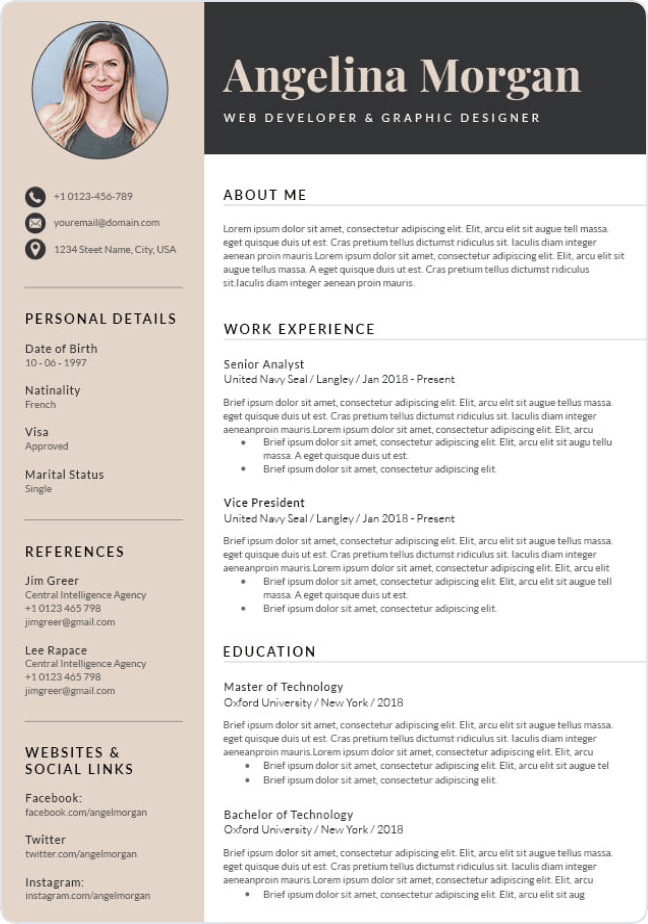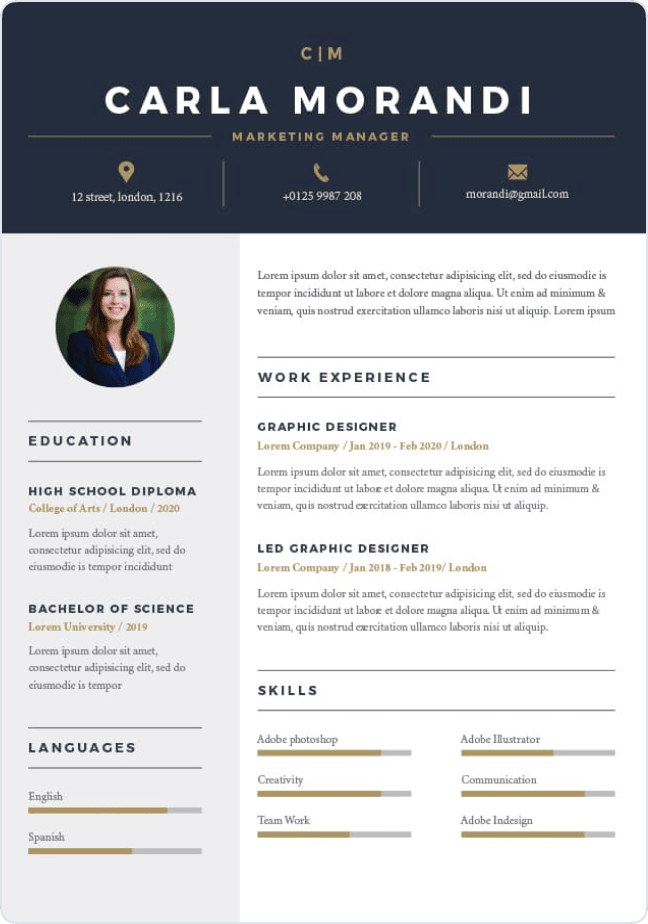Nursing school taught you everything a nursing student needs to become a professional healthcare provider, except the first step – writing your resume.
To help you secure your first nursing job, you need to create a compelling new graduate nurse resume that will highlight your training, skills, and potential in the healthcare industry. You need to ensure that all the information you include in your application is updated and relevant to the job you’re applying for.
You can use color and form on your resumes to make them stand out. Check out some examples of elegant and modern resume designs here. Just ensure that your license, education, student work experience, still take center stage.
Important Sections
Your resume should be broken down into specific sections. This makes it easier to skim through and allow the respective personnel who will review your application to focus on relevant info. As a new grad nurse, the sections below are crucial for you.
Resume Header
This part should contain your name, professional designation, contact information, plus professional social profile. You don’t need to include any photo here, but if you want to, make sure that it’s a formal nursing student profile, not your usual social media pic. Also, set your name as H1 or Title to make it stand out. Make sure all information here is updated, so you could be quickly reached via email or your phone number. Here’s an excellent resume example for the header section:Mary Jane Watson
Registered Nurse
(123) 456-7890
maryjwatson@example.com
Also, make sure that you have a professional email. An address like h0tpinkgurl99@gmail.com might be a turn-off for some HR specialists, so it’s better just to use your name.Resume Objective
As you’re a new grad nurse with no work experience, a professional summary or resume objective would be more appropriate than a professional summary. In this section, you can focus on what you aim to achieve in your career. However, if you have relevant experience, you can bank on writing a professional summary instead. Take a look at this professional objective resume example:Nursing graduate from John Hopkins University, looking to build a hospital career where I can make the most impact on patient lives. Preferably with opportunity for advancement within the nursing profession. Proven experience training in different departments of Princeton-Plainsboro Teaching Hospital. Able to handle high-stress situations while providing empathetic care to trauma patients.
Required Licenses and Certifications
This is the most important of your resume if your applying for a licensed position. If you skip this, your file will immediately head to the out bin because this is a requirement for all nursing positions.If you have certified skills, be sure to prioritize these. If you have an additional license or certification from professionally recognized bodies, they will definitely add a significant boost to your application.
You can include certifications not required by the hiring company, but are relevant to you as a registered nurse, like training on specific medical equipment or credentials on new patient care techniques here. When you are trained for relevant skills and positions, that could make you the default choice for the hiring manager.

Other Sections
This part would usually contain your volunteer experience, organizational affiliation, and more. Again, relevancy is key in every resume, so if it’s not related to your desired position, do not include it. These are the other sections found in many resume examples that you could include in your nurse resume: Source: US National Archives- Volunteer experience. Relevant experience, including working as a volunteer in medical facilities, medical missions, or other health-related positions.
- Organizational affiliation. If you are a member of the Red Cross, American Nursing Association, or any student nurse group, this would be a good addition because they show your commitment to the career.
- Leadership positions. If you held a position of influence or management, don’t forget to include it. This can help your application by showing you have organizational, interpersonal, and teamwork skills.
- Languages. if you’re applying in a medical center located in a major urban area or near the country’s border, speaking relevant languages is definitely a good plus.
Frequently Asked Questions
What Do You Put on a Resume for a New Grad RN?
Besides writing down your name and professional summary or objectives, the most essential parts you should include in your resume as a registered nurse should be your nursing licenses and certifications, clinical training, relevant coursework & educational records, and relevant skills & certifications.How Do You Write a Nursing Resume With No Experience?
If you don’t have working experience as a new grad nurse, your next best option is to focus on your license and certifications, clinical rotations, practical training, and preceptorship. You can highlight your performance in these positions – be sure to list down your responsibilities and achievements here.
How Do New Grad Nurses Stand Out?
The most crucial thing you need to do when sending your application is to customize your resume for every position you desire. That means ensuring that you get all the keywords in the job post of your prospective employer and include them in your resume. Be specific in your details and only include relevant portions of your experience and training. If you have achievements, like outstanding grades, Latin honors, or even excellent clinical rotations, then be sure to include them! Also, membership or leadership in nursing, medical, or other relevant associations would greatly benefit your application. If you’re affiliated with the Red Cross, Red Crescent, or any other organization, include them in your resume as well.What Skills Should I List on My New Grad Nursing Resume?
Aside from certifications and training by professionally recognized bodies, you can also include your hard and soft skills in your nursing resume. These skills should be relevant in your nursing job, so choose them wisely. Hard skills should consist of technical specialties and knowledge, like basic life support, patient care, and assessment, use of hospital machines and software, standard operating procedures like infection control, and hospital code checklists. Soft skills, on the other hand, non-technical abilities which can improve your performance as a registered nurse. These include building interpersonal relationships, communication, workload management and prioritization, and even patient empathy.Get Your New Grad Nurse Resume on Top
Whenever you’re writing your nurse resume, you have to pack as much information as possible in the least number of sentences. However, keep in mind that it still has to have good readability and format. Plus, you also need to write top-rate cover letters to go along with your RN resume.If you’re having a hard time writing your nurse resumes, you can always look at resume templates or use a resume builder to get you started. You can use the generated example to create a professional resume. When done correctly, your new grad nurse resume would have better chances of securing that nursing job and building your career at your dream medical center. Remember, always be truthful! Lying on your professional resume will not only cost you the position, it could also blacklist you in the hospital’s network too.


























